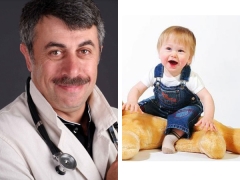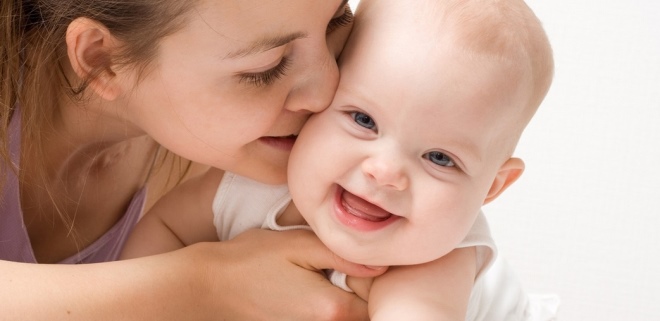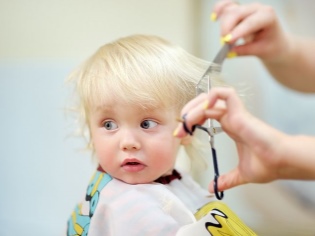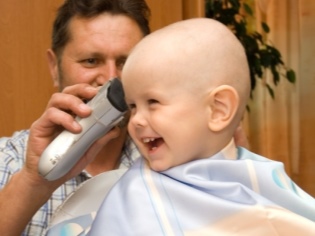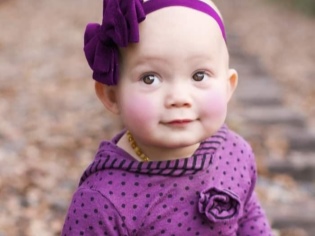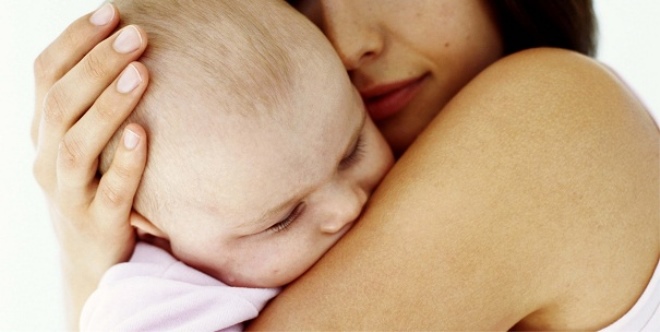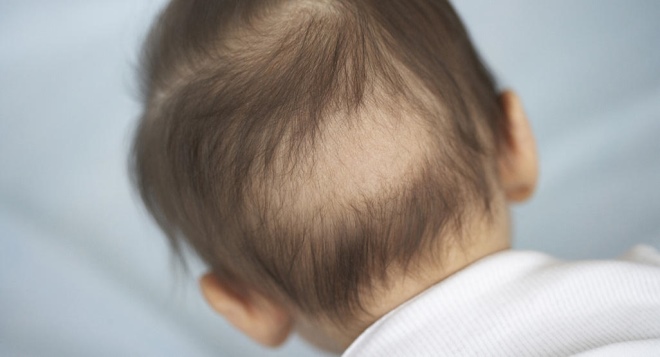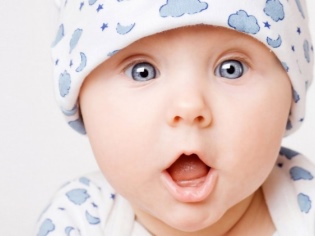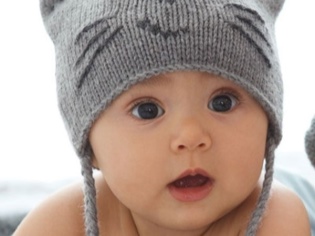Dr. Komarovsky about children's hair and whether it is necessary to cut a child a year bald
Children's hair more than other parts of the body are shrouded in mysterious myths, rumors and prejudices. For example, most mothers believe that cutting a child up to one year can disrupt the invisible connection between mother and child, while others believe that the baby, along with infant hair, loses in the future good luck, health and well-being. But grandmother's advice is sure to cut the child a year baldly promise the child in the subsequent thick and beautiful hair.
What is true and what is not, a well-known pediatrician doctor knows Evgeny Komarovsky.
About children's hair
Some babies are born with an impressive head of hair, while others are almost bald. It depends on the innate characteristics, as well as on the speed of hair growth during the period of intrauterine development. However, in the first months of life, partial loss of hair is considered the norm, because the infant hair of a newborn is gradually changing to more formed in structure.
The baby's hair is not similar to adults, because the medula is not developed in them - a small microscopic rod that is responsible for the main function of the scalp - heat preservation. Infant hairs, therefore, do not warm his head at all. However, this is not a reason, according to Yevgeny Komarovsky, to wear a few hats and caps on her. The kid will not freeze, because he has a more active blood circulation. A quarter of the blood volume is nourished by the brain, and since this process is intense, then, first of all, it is the head that sweats from the tokens.
Myths and truth
- “Hair cannot be cut until year” - myth. If the child has thick hair, and the July heat is on the street and the head is sweating, then it is more hygienic and more useful to cut the baby. The connection between success in the future and the first infant curls has not been proven by anyone, as well as the fact that it is through the hair that the infant communicates with the mother.
- “You need to wash the baby’s head more often with baby soap” is a myth, and a rather dangerous one, warns Yevgeny Komarovsky. Daily washing of the head with soap, even if it is hypoallergenic, childish, can lead to hair loss, and not to their active growth. The doctor recommends washing your hair with detergent no more than once a week.
- “You need to brush your baby more often” is a myth. Often combing, even though it may be a pleasure for some of the children, injures the hair.
- “Strengthening the hair is necessary with grass decoctions” is a myth. Komarovsky calls it a commercially sound hearing. It is beneficial for manufacturers and sellers of various tools based on herbs and fees. Weak hair can not be strengthened. You can not spoil them.
Is it good to cut in a year?
This question Evgeny Komarovsky asked most often. In families, there are real battles on this topic, because fathers, who are less susceptible to mystification, do not attach due importance to the problem, and mothers are worried about this even more. Parents are interested not only in whether to cut the child a year, but also in where and how to properly dispose of the hair of the toddler, so that they do not jinx it, “steal life force”, or offend it.
By itself, a haircut year-old karapuz does not harm, says Yevgeny Komarovsky. But also to hope that the hair will begin to grow thick and curly, if up to a year they were thin and straight, you should not.The density and thickness of the hair, the speed of their growth, texture and color - all this information is laid at the genetic level long before the child was born.
As soon as the fertilization of the egg, the set of genes is strictly defined, and it means everything - and whether the baby is brown or blond, and whether his hair will be thick.
Accordingly, trimming or shaving well cannot change anything in the genetic code, and therefore these manipulations have no effect on the quality of the hair. Relatives may have the illusion that their hair has become stronger and thicker, because, according to Evgeny Komarovsky, hair growing back after haircut looks more voluminous and feels tougher to the touch. But this is nothing more than an illusion. Therefore, to cut a year or not is up to the parents. If the baby is not trimmed, nothing terrible will happen, as no miracle will happen if it is shaved.
Regarding where to put the cropped hair, Komarovsky advises to apply a maximum of imagination. If you want to bury them under a pear in the garden at full moon - please. If you want to burn, and dispel dust on the river - also no problems. Since medicine has not proven that there is at least some connection between cut hair and the fate of a child. If you really want to find such a connection, it is better to address this issue with healers, magicians or shamans.
Why is bald head?
This is the second most popular question that Dr. Komarovsky has to answer. Many parents, and even pediatricians, argue that a bald patch on the back of his head at the age of one year is a sign of rickets. Yevgeny Komarovskoy claims that baldness of the back of the head has nothing to do with rickets. Just a baby up to 6 months most of his life is lying down. When he learns to turn his head around, he begins to actively use this new skill. Hair rub on the bed and just wipe off.
Do I wear hats and caps?
If a hair fall out all over the head, the reason may be a lack of vitamins, poor nutrition, as well as chronic overheating of the scalp, which threatens all the kids, whose parents and grandmothers are used to be sure to wear toddler hats. The caps should be removed so that the scalp begins to "breathe", then with great probability there is no need to do anything else, because the quality of the hair will soon noticeably improve and the loss will stop.
Caps should be avoided in the period of illness of the child. A cap at high temperatures can become very dangerous, because, according to Komarovsky, a child simply has no place to "dump" excess heat.
Possible problems
The list of pathological disorders in hair growth is quite large, but, according to Evgeny Komarovsky, every mother should know:
- ringworm (hair falls out strongly, in some places the hairline looks like trimmed). To treat this fungal disease should pediatric infectious disease;
- alopecia (hair fall out due to severe immuno-allergic pathologies). With such alopecia, the hair roots are damaged. Treat the disease will be a pediatrician and an allergist;
- obsessive movement syndrome and states (the child damages the hair mechanically - winding it on the finger, pulling it out, pulling it out). He rarely needs treatment, often neurosis disappears on its own, but consultation with a pediatric neurologist, psychologist and psychiatrist will not hurt;
- stresses, fears, emotional trauma (hair growth is disturbed at the biochemical level, as well as as a result of vascular spasm of the scalp). The problem must be addressed to a pediatrician and a pediatric neurologist;
- avitaminosis (a deficiency of vitamins of group B and zinc greatly influences hair loss). The problem should be addressed to the pediatrician;
- hypervitaminosis (loss and brittle hair as a result of an overdose of vitamins, in particular excessive consumption of vitamin A). Discussed with a pediatrician;
- medicinal "side effects" (some medications cause problems with the condition of the hair).The phenomenon is temporary, it does not need much treatment, but you can discuss it with your pediatrician;
- hypothyroidism (scalp suffers from problems with the thyroid gland). Treats the endocrinologist.
Tips of Dr. Komarovsky
The doctor advises not to exaggerate the problems associated with children's hair. The first time is to cut the child when growing hair begins to cause him or his relatives inconvenience. If you suspect a disease - immediately go to the doctor, who knows why, how and why.
Dr. Komarovsky will talk about the problems that children with hair can have, as well as the common prejudices associated with hairline:
